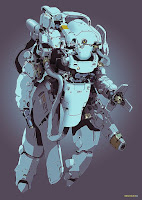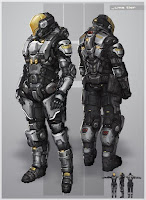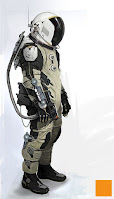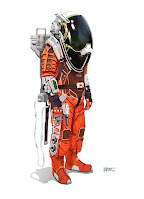ANGER
EMOTIONS
Once you start to live in "actual" reality again, anger might start to set in. This is a common stage to think "Why me?" and "Life's not fair!" You might look to blame others for the cause of your grief and also may redirect your anger to close friends and family. You find it incomprehensible how something like this could happen to you. If you are strong in faith, you might start to question your belief in God: Where is God? Why didn't he protect me?
Researchers and mental health professionals agree that this anger is a necessary stage of grief. And encourage the anger. It's important to truly feel the anger. Even though it might seem like you are in an endless cycle of anger, it will dissipate - and the more you truly feel the anger, the quicker it will dissipate, and the more quickly you will heal. It is not healthy to suppress your feelings of anger - it is a natural response - and perhaps, arguably, a necessary one.
(However, while suppressing anger is not advised, neither is letting it control you. It's important to seek help from a trained counselor or therapist if you are struggling with processing your anger.)
In everyday life, we are normally told to control our anger towards situations and toward others. When you experience a grief event, you might feel disconnected from reality, that you have no grounding anymore. Your life has shattered and there's nothing solid to hold onto. Think of anger as a strength to bind you to reality. You might feel deserted or abandoned during a grief event. That no one is there. You are alone in this world. The direction of anger toward something or somebody is what might bridge you back to reality and connect you to people again. It is a "thing." It's something to grasp onto, a natural step in healing.
I want to avoid any religious aspects of this as it doesn't fit with the theme of space travel and may discourage some non-religious players, instead looking more at how to replicate the necessity of anger and how it may be represented within the environment and mechanics in relation to our knowledge of other planets and worlds as well as what's come before in other space-based media such as games, books, and films (avoiding actually making the player angry as this is a completely separate issue with competitiveness and video games) Firstly once again looking at synonyms of emotions expressed when angered.
Strongest synonym
Strong synonym
Weak synonym
RAGE
Animosity, Bitterness, Exasperation, Excitement, Frenzy, Furor, Fury, Indignation, Irritation, Madness, Mania, Obsession, Outburst, Passion, Resentment, Temper, Violence.
Acerbity, Acrimony, Agitation, Apoplexy, Asperity, Blowup, Bluster, Choler, Convulsion, Dander, Eruption, Explosion, Ferment, Ferocity, Fireworks, Gall, Heat, Hemorrhage, Huff, Hysterics, Ire, Paroxysm, Rampage, Raving, Spasm, Spleen, Squall, Storm, Tantrum, Umbrage, Uproar, Upset, Vehemence, Wrath.
Wingding.
Questioning
Examination.
Catechism, Inquest, Inquiring, Inquisition.
ANGER
Acrimony, Animosity, Annoyance, Antagonism, Displeasure, Enmity, Exasperation, Fury, Hatred, Impatience, Indignation, Ire, Irritation, Outrage, Passion, Rage, Resentment, Temper, Violence.
Chagrin, Choler, Conniption, Dander, Disapprobation, Distemper, Gall, Huff, Infuriation, Irascibility, Irritability, Miff, Peevishness, Petulance, Pique, Rankling, Soreness, Stew, Storm, Tantrum, Tiff, Umbrage, Vexation.
Blow up, Cat fit, Hissy fit, Ill humor, Ill temper, Slow burn.
CRY
Bawl, Blubber, Howl, Lament, Sob, Wail.
Bawling, Bewailing, Blubbering, Howling, Keening, Lamentation, Mourning, Snivel, Snivelling, Sobbing, Sorrowing, Wailing, Weeping, Whimpering, Yowl.
Tears.
FRUSTRATION
Annoyance, Dissatisfaction, Failure, Grievance, Irritation, Resentment.
Blocking, Blow, Bummer, Chagrin, Circumvention, Contravention, Curbing, Defeat, Disgruntlement, Downer, Drag, Fizzle, Foiling, Hinderance, Impediment, Letdown, Obstruction, Setback, Vexation.
Bitter pill, Nonfulfillment, Nonsuccess, Old one-two, Unfulfillment.
When looking at these synonyms of emotions themed around anger it is important to make sure that these are represented in the game either through other characters or environmental assets not to cause these feelings in the player through challenging puzzles or interactions, I do not wish to make the player feel the several stages of grief as they go through the game but to observe and understand them and hopefully gain the tools to overcome them.
We can observe this tactic in a number of ways with games such as Zelda: Majora's Mask opting for NPC interactions to display the stage of anger, where the Deku of Woodfall have had their princess go missing and take their anger out on an innocent monkey instead of calmly planning out what to do to save her. Gris opts for both an environmental display of anger as well as a player ability with the Terrain becoming red in colour and intermittent storms forcing the player back with their new ability to become a heavy block preventing this and also allowing them to smash through fragile floors, all three effects are representative of anger. It is interesting to observe the studio opting to have the player character display an implied level of anger through this ability, though with them being a human female character the player can have some intended separation from them and perhaps see the gameplay as a way of helping the character through grief rather than joining them on the journey themselves and thus overcome the earlier problems I suggested could be incurred.

One early idea was to have the suit travel to different planets that each represented the 5 stages of grief, similar to how Link travels to various places in Majora's Mask, but this seemed counter-productive to the idea that the ship had crash-landed and all inhabitants had gotten into their space suits and used evacuation pods to arrive here with the player character discovering that there was no human in him thus leading to the journey in the first place, a crashed ship wouldn't then be traveling around looking for answers. The serendipity of this would lead me to develop the idea of the suit traveling deeper into the planet rather than just the surface to solve their dilemma as the journey of grief cannot be solved purely on the surface level.
Having to travel below the surface offered an answer to how I would represent anger in this stage as well, a planetary mining operation. The drills and hammers used in this operation would be massive and cause reverberations across the planet leading to earthquake-like disturbances for the player and intrusive noises with movements like the lashing out we do when angered whilst also offering the opportunity for platform puzzles and such as well as a motive for the how the player moves downward through the planet. If they start at the crash site, or part of it, in the denial stage (moving away from it to deny the event) and end up back there in the acceptance stage to discover their human was the Captain who went down with the ship they will come full circle whilst having learned something along the way, akin to the hero's journey archetype. Also, the mining would kick up a lot of dust and debris which could discolor the armour of the suit to a more reddish hue, with colour being easier to change throughout the game for representative purposes rather than medium or texture which can be attributed to emotions can cause too much disorientation for the player if it affects the art style of the game too much.





















































































